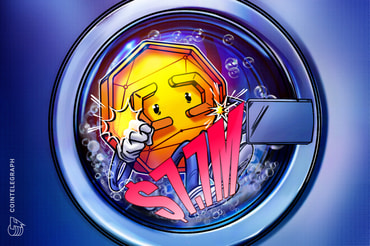SEC’s Gensler Says House Bill Would ‘Undermine’ Regulator’s Crypto, Capital Markets Oversight

The Financial Innovation and Technology for the 21st Century Act would hurt investors and hamper the U.S. Securities and Exchange Commission’s work, SEC Chair Gary Gensler said Wednesday.
“The Financial Innovation and Technology for the 21st Century Act (‘FIT 21’) would create new regulatory gaps and undermine decades of precedent regarding the oversight of investment contracts, putting investors and capital markets at immeasurable risk,” he said.
FIT21 is a joint bill produced by the House Agriculture Committee and the House Financial Services Committee, and is intended to clarify how the SEC and Commodity Futures Trading Commission (CFTC) oversee crypto. It creates a “digital commodity” term for digital assets that do not meet the bill’s definition of a security, placing those assets under the CFTC’s purview.
According to Gensler, FIT21 ignores long-standing precedent for how investment contracts are regulated, puts the agency into a tough position for certifying self-proclaimed digital commodity issuers, ignores Supreme Court precedent in the Howey Test, removes investor protections and potentially allows investors to take on excessive risk without appropriate disclosures.
U.S. securities laws were developed after the Great Depression to protect consumers by forcing disclosures and giving both the regulator and investors tools to safeguard customers, Gensler said. Crypto industry participants have not been willing to comply with these regulations, he said.
“The bill would remove investment contracts that are recorded on a blockchain from
the statutory definition of securities and the time-tested protections of much of the federal
securities laws,” he said. “By removing this set of investment contracts from the statutory list of securities, the bill implies what courts have repeatedly ruled – but what crypto market participants have attempted to deny – that many crypto assets are being offered and sold as securities under existing law.”
While the bill includes a provision for companies to self-certify that they’re issuing “digital commodities,” it gives the SEC 60 days to assess whether those assets meet the bill’s definition of a digital commodity. That is not enough time given just how many digital assets are circulating, he said.
Gensler also took aim at how the bill defined a digital commodity, saying it ignored the Howey Test precedent and the economic realities of assets. Between that, the investor protection framework the bill sets in place for crypto investors and the exclusion of exchanges, the bill may “increase risk to the American public,” he said.
FIT21 might also harm the U.S.’s broader capital markets, Gensler said, by letting companies try to avoid SEC oversight by using some sort of decentralized network.
The House of Representatives is expected to vote on the bill later on Wednesday, though it does not currently have a clear road through the Senate and is unlikely to become a law this year.
Edited by Sheldon Reback.
Disclosure
Please note that our privacy policy, terms of use, cookies, and do not sell my personal information has been updated.CoinDesk is an award-winning media outlet that covers the cryptocurrency industry. Its journalists abide by a strict set of editorial policies. In November 2023, CoinDesk was acquired by the Bullish group, owner of Bullish, a regulated, digital assets exchange. The Bullish group is majority-owned by Block.one; both companies have interests in a variety of blockchain and digital asset businesses and significant holdings of digital assets, including bitcoin. CoinDesk operates as an independent subsidiary with an editorial committee to protect journalistic independence. CoinDesk employees, including journalists, may receive options in the Bullish group as part of their compensation.
Nikhilesh De is CoinDesk’s managing editor for global policy and regulation. He owns marginal amounts of bitcoin and ether.
Learn more about Consensus 2024, CoinDesk’s longest-running and most influential event that brings together all sides of crypto, blockchain and Web3. Head to consensus.coindesk.com to register and buy your pass now.

Published on Other News Site













